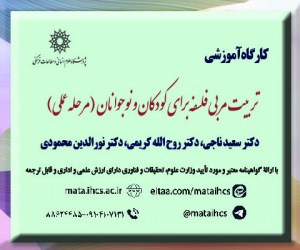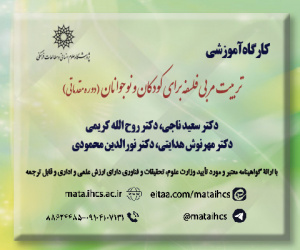تبیین مفهوم الاهیاتی«نفی صفات از خدا»توسط امیرمومنان علی (ع) در خطبه نخست نهج البلاغه (مقاله علمی وزارت علوم)
درجه علمی: نشریه علمی (وزارت علوم)
آرشیو
چکیده
بحث از توحید و یگانگی حضرت حق سبحانه در اوج این مباحث الاهیاتی قرار دارد و همواره فکر اندیشمندان را به خود مشغول کرده است و دراین میان، متون دینی اسلامی بالاترین اندیشه ها در این زمینه ارائه داده است و قله این اندیشه ها ریشه در آیات قرآن کریم دارد که توسط امیر مومنان علی (ع) در نهج البلاغه تبیین شده است. این پژوهش–کهدرروشگردآوریمطالب،کتابخانهایاستودرنحوهاستناد داده ها، از شیوه اسنادی پیروی می کند و در تجزیه و تحلیل مطالب، روش آن تحلیل محتوایی از نوع توصیفی تحلیلی می باشد.–مسالهنفی صفات از خدا را که در خطبه نخست نهج البلاغه تحلیل و احتمالات گوناگون در معنایآن را ذکر و نقد نموده و در پایان به ای نتیجه دست یافته است که تنها معنای موجه نفی صفات از خدا در این فراز از نهج البلاغه، به ویژه با توجه به استدلال های علی (ع) حمل آن بر نفی صفات از مرحله ذات و توحید احدی و ملازم با وحدت شخصی حضرت حق سبحانه است که برتر از توجید واحدی و عددی می باشد.The Conceptology of "Denial of Attributes from God" in the First Sermon of Nahj al-Balāghah
One of the essential theological topics is the discussion of the monotheism and oneness of God, which has always attracted the attention of thinkers. The Islamic religious texts have presented the highest ideas whose primary pillars are rooted in the Quran and explained by Imam Ali (AS) in Nahj al-Balāghah. With a library, documentary, and analytic-descriptive method, the present study aimed to express and analyse the issue of denial of attributes from God in the first sermon of Nahj al-Balāghah and its meanings and various possibilities. The result indicated that the only justifiable sense of rejection of features from God in this sermon, especially regarding the arguments of Ali (AS), is a denial of characteristics from the essence stage and oneness monotheism and associated with personal unity of God is superior to singleness and numerical monotheism.



